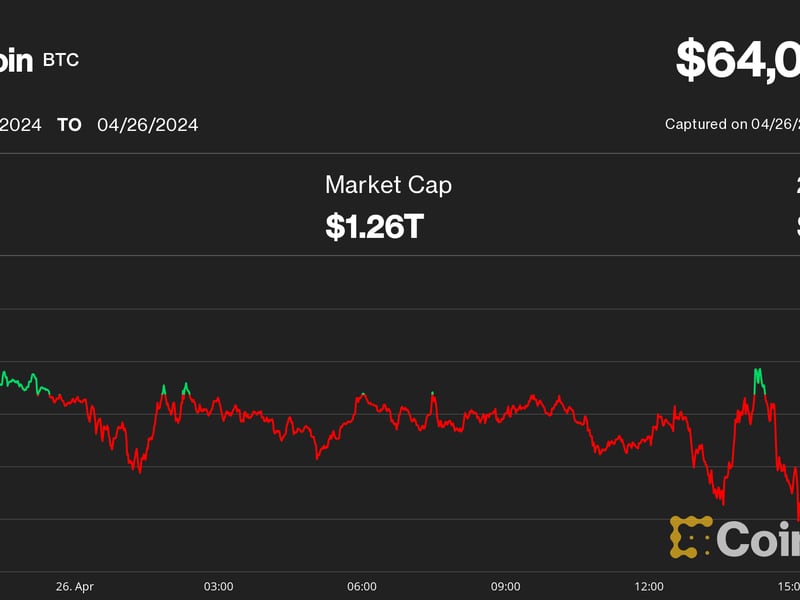Cryptocurrencies, widely known for their often volatile nature, were a sea of calm Friday as the Japanese yen's tumble to a fresh 34-year low against the U.S. dollar left traditional market observers mulling over potential knock-on effects.
Bitcoin (BTC) continued its recent choppy action during the day within a tight range around $64,000, down 0.9% over the last 24 hours. The broad-market CoinDesk 20 Index (CD20) fell slightly more with smart contract network tokens solana (SOL), ICP and decentralized exchange Uniswap's UNI declining 2%-4%.
The Japanese yen (JPY) dove another 1.3% during the day – a huge move for a major currency – to its weakest level against the U.S. dollar since 1990 after the Bank of Japan (BOJ) held interest rates at near zero and didn't indicate much concern over the weakening currency. In the U.S., meanwhile, continuing solid economic growth and stubbornly high inflation are snuffing out hopes for perhaps any easing of monetary policy this year.
"Moves of this size and speed in currencies is not normal so I expect some intervention or coordination fairly soon if it continues into the next few weeks," Quinn Thompson, founder of hedge fund Lekker Capital, told CoinDesk.
The yen's devaluation didn't impact crypto markets yet, but this could change if the BOJ steps in to prop up the currency, Noelle Acheson, analyst and author of the Crypto Is Macro Now reports, said in an email interview. A possible intervention would mean the BOJ selling U.S. dollar assets (U.S. Treasuries) to buy yen, and a weaker greenback could in theory help crypto prices, she added.
Another form of intervention could arrive from U.S. policymakers deciding to inject liquidity to the markets, which could support risk assets such as cryptos, Lekker's Thompson said.
Read more: The Key to Reviving Bitcoin Bull Run is the U.S. Treasury’s Refunding Announcement Zooming out, Acheson forecasted that the "currency turmoil won't stop with the yen," as the recent jump in U.S. yields following sticky inflation reports will put a strain on other currencies, perhaps forcing other central banks to take action.
"We could see a collective selling of U.S. treasuries to raise cash to support local currencies, adding further upside pressure to U.S. yields while adding to inflationary pressures elsewhere," Acheson said. "This currency volatility and vulnerability could encourage more corporate and even sovereign holdings of hedges such as gold and bitcoin."
Edited by Stephen Alpher.
